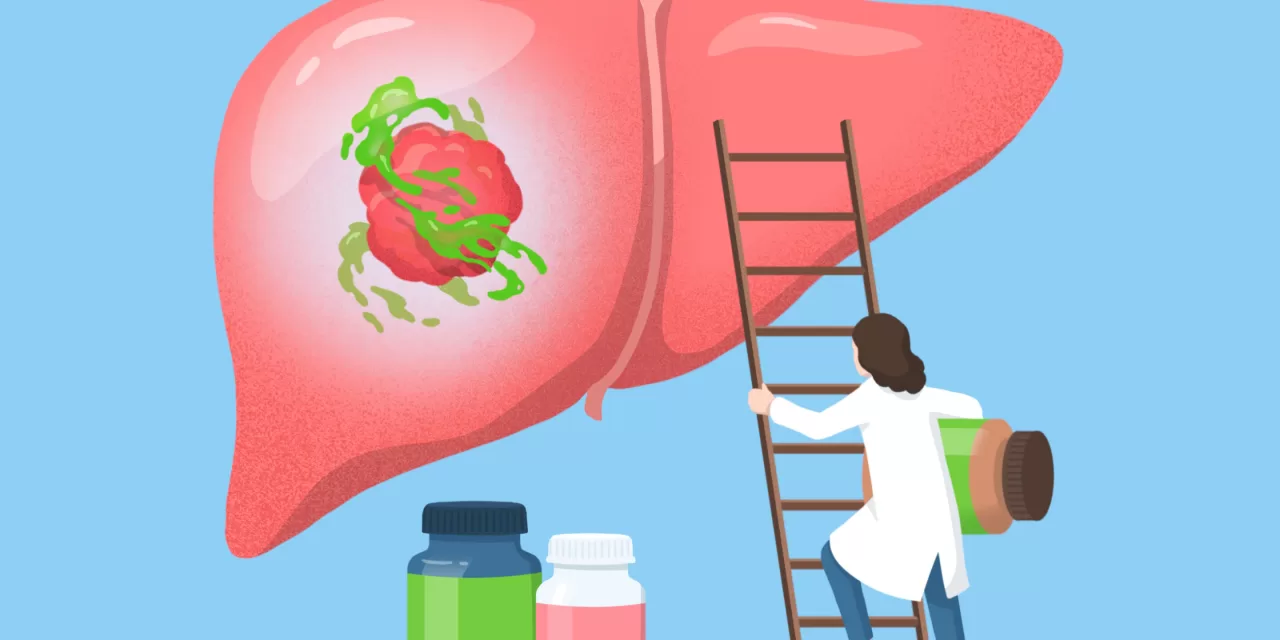Immunotherapy has revolutionized the treatment of several cancers, including lung, kidney, and bladder cancers, by harnessing the body’s own immune system to fight tumors. However, its effectiveness against liver cancer has been more limited, a troubling trend as the incidence of liver cancer has nearly tripled in the last 40 years. Researchers at the Salk Institute have now uncovered a potential reason for this discrepancy and a promising solution.
The team discovered that bile acids in the liver, which play a critical role in digestion, could interfere with immune cells responsible for fighting cancer. By studying mouse and human liver tumors, they found that certain bile acids could inhibit the activity of T cells, the immune system’s cancer-fighting soldiers. Among the bile acids identified, one stood out as a potential therapeutic target—ursodeoxycholic acid (UDCA).
This particular bile acid, already used in clinical settings to treat liver diseases, was shown to improve T cell function in the liver and shrink existing tumors when its levels were boosted in mice with liver cancer. The findings, published in Science, suggest that UDCA supplementation could enhance the effectiveness of immunotherapy for liver cancer patients.
Professor Susan Kaech, the senior author of the study, explains that liver cancer presents unique challenges due to the liver’s environment, which is shaped by over 100 different bile acids. These bile acids, crucial for digestion, also influence immune responses in the liver, but their exact roles in cancer had been unclear until now. “By investigating these liver-specific features, we have identified several potential ways to regulate bile acids, improve T cell performance, and enhance patient outcomes,” said Kaech, who is also the director of Salk’s NOMIS Center for Immunobiology and Microbial Pathogenesis.
The team found that conjugated bile acids, in particular, were elevated in liver tumor samples, and blocking the protein responsible for their production led to reduced tumor burden in mice. The researchers also identified two primary bile acids—LCA and UDCA—that had significant effects on T cell function. While LCA impaired T cells by causing oxidative stress and endoplasmic reticulum stress, UDCA helped recruit immune cells to the liver, enhancing the body’s ability to fight tumors.
Given that UDCA is already used to treat liver diseases, the researchers are hopeful that its use could be expanded to improve immunotherapy outcomes for liver cancer patients. “We’re already a huge step ahead when it comes to translating our findings to the clinic, because UDCA supplementation is already used to treat liver disease and could easily be tested in liver cancer next,” says Kaech.
Additionally, the team is exploring the potential role of the gut microbiome in regulating bile acid levels. “How can we manipulate ‘good’ and ‘bad’ bacteria in the microbiome to further regulate bile acid levels? Could probiotics be a therapeutic approach?” Kaech asks, highlighting the need for further research into this area.
The team also plans to investigate whether targeting bile acid synthesis could offer therapeutic benefits for other conditions such as chronic liver disease and obesity.
As liver cancer rates continue to rise, these findings offer new hope for improving treatment outcomes. By targeting bile acids and enhancing immune function, UDCA supplementation may help unlock the full potential of immunotherapy for liver cancer patients, marking a significant step forward in the battle against this devastating disease.
For more details, the research is published in Science: Siva Karthik Varanasi et al, Bile acid synthesis impedes tumor-specific T cell responses during liver cancer, 2025. DOI: 10.1126/science.adl4100.











